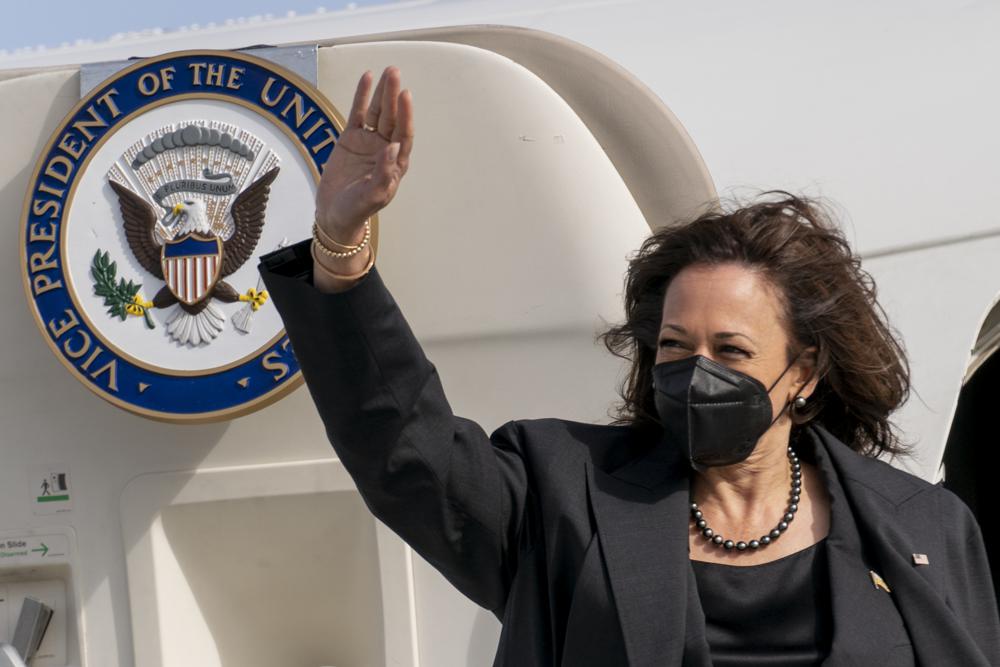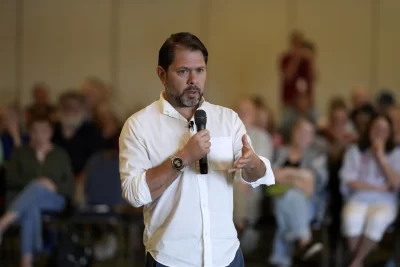
MUNICH — Acknowledging “the real possibility of war,” Vice President Kamala Harris wrapped up a weekend of outreach to European allies with a push to bolster the West’s resolve in confronting Moscow with crippling sanctions as increasingly dire signs suggest Russia’s Vladimir Putin plans to order an invasion of Ukraine.
In a burst of diplomacy at the annual Munich Security Conference, Harris tried to make the case to American allies that rapidly escalating tensions on the Ukraine-Russian border meant European security was under “direct threat” and there should be unified support for economic penalties if the Kremlin invades its neighbor.
“It’s been over 70 years, and through those 70 years … there has been peace and security,” she said. “We are talking about the real possibility of war in Europe.”
President Joe Biden was to meet with his national security team later Sunday in Washington to discuss the unfolding developments. Harris planned to participate while flying back from Germany. Before leaving Munich, Harris and her team briefed them about her meetings and exchanges at the conference.
Biden is scheduled to hold a virtual meeting with Group of Seven leaders on Thursday to discuss Ukraine, and his top diplomat, Secretary of State Antony Blinken, intends to meet in Europe with Russian Foreign Minister Sergey Lavrov this coming week — talks that the American says will be scrapped if Moscow has invaded.
In Ukraine, shelling on Sunday escalated in and around territory held by Russia-backed rebels, separatists evacuated thousands of women and children and Putin oversaw tests of nuclear-capable missiles. Putin has massed more than 150,000 Russia forces at the border.
During a series of choreographed meetings and a major address at the security conference, Harris told global leaders they were at a “defining” and “decisive” moment for the world.
Harris met with President Volodymyr Zelenskyy of Ukraine, European Commission President Ursula von der Leyen, NATO Secretary-General Jens Stoltenberg, the leaders of the three Baltic nations, German Chancellor Olaf Scholz and Greek Prime Minister Kyriakos Mitsotakis.







